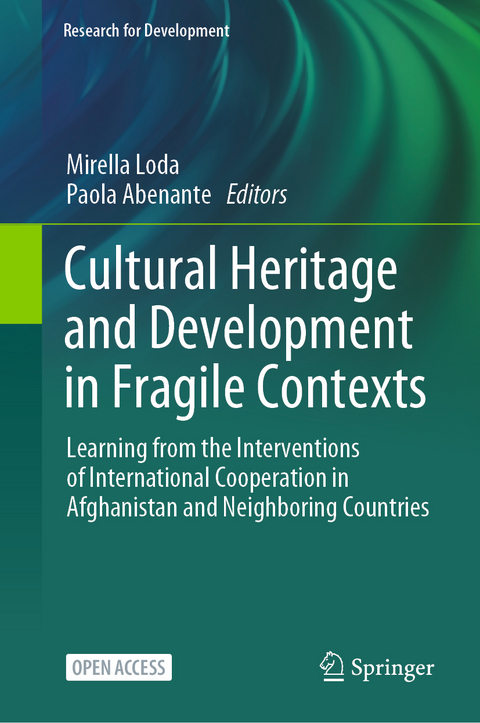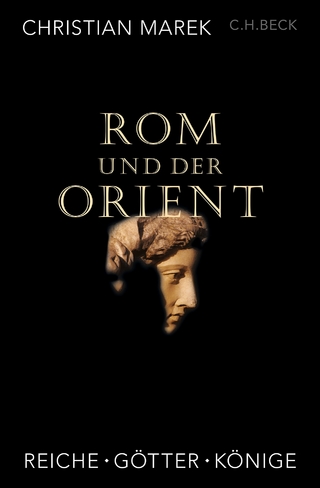
Cultural Heritage and Development in Fragile Contexts
Springer International Publishing (Verlag)
978-3-031-54815-4 (ISBN)
This open access book discusses cooperation strategies for safeguarding cultural heritage in nations facing diverse forms of fragility. Through case studies and a critical analysis, it explores preserving cultural heritage to spur regional socioeconomic development and community empowerment, focusing on the Middle East and Pakistan, with an in-depht exploration of the World Heritage site of Bamiyan, Afghanistan. The first section offers an overview of cultural heritage protection efforts since UNESCO designated Bamiyan Valley as a World Heritage Site in 2003, reflecting on challenges and successes before Taliban rule. The second section turns to the present situation, analysing the inerplay between heritage preservation, community involvement and policies addressing urban and demographic growth. The third section provides a review of relevant examples of cultural heritage preservation in the Middle East and Pakistan by the Italian Agency for Development Cooperation, UNESCO, and international NGOs. It highlights the relationship between heritage protection, sustainable development and the mitigation of social and economic fragilities. In the concluding section, the book synthesizes research findings and operational approaches, providing a nuanced understanding of the cultural heritage, development, and fragility in the Middle East. Concluding, in the fourth section, the book offers a comprehensive report on main methodological findings, also conferrable to other contexts both in terms of future research and operational activities.
Mirella Lorella Loda is responsible for the LaGeS-Laboratory for Social Geography at Florence University (www.lages.eu). She is founder director of the Master degree in Geography, Spatial Management, Heritage for International Cooperation at Florence University. She is also member of the UNESCO Expert Working Group for the Safeguarding of the Cultural Landscape and Archeological Remains of the Bamiyan Valley World Heritage Property. She is responsible of an ongoing cooperation project for upgrading the urban quality of informal settlements in Bmiyan.
Paola Abenante works as technical expert on culture and development at the Italian Agency for Development Cooperation, Office III Economic Opportunities and Development (Cultura e sviluppo - AICS). Ph.D., in Cultural Anthropology, she has conducted research on the topics of cultural policies, migration, religions and gender in the Middle East, and is now subject expert and teaching assistant in Cultural Anthropology at the University of Rome 'La Sapienza'.
Achievements and Challenges in the Protection of the World Heritage Site of Bamiyan.- Cultural Heritage and Urban development.- International cooperation in the field of Cultural Heritage.- Suggestions for field work.
| Erscheinungsdatum | 27.08.2024 |
|---|---|
| Reihe/Serie | Research for Development |
| Zusatzinfo | XIII, 311 p. 101 illus., 98 illus. in color. |
| Verlagsort | Cham |
| Sprache | englisch |
| Maße | 155 x 235 mm |
| Themenwelt | Geisteswissenschaften ► Archäologie |
| Geschichte ► Allgemeine Geschichte ► Altertum / Antike | |
| Schlagworte | Bamiyan and Afghanistan Cultural Heritage • Bamiyan archaeological remains and cultural landscape • Development cooperation in Afghanistan and in the Middle East • Managing urban growth in UNESCO World Heritage sites • open access • Safeguarding Cultural Heritage and sustainable development • Safeguarding Cultural Heritage in fragile contexts |
| ISBN-10 | 3-031-54815-9 / 3031548159 |
| ISBN-13 | 978-3-031-54815-4 / 9783031548154 |
| Zustand | Neuware |
| Informationen gemäß Produktsicherheitsverordnung (GPSR) | |
| Haben Sie eine Frage zum Produkt? |
aus dem Bereich


